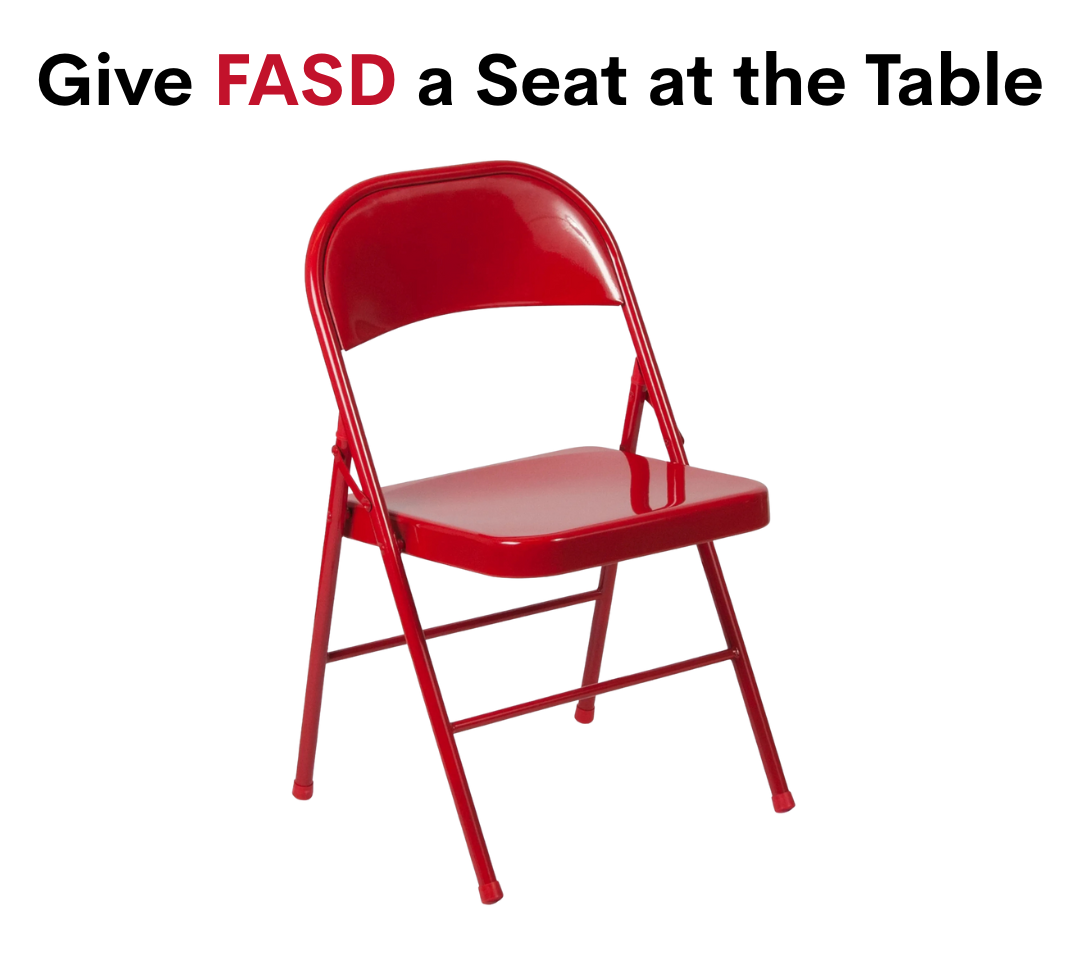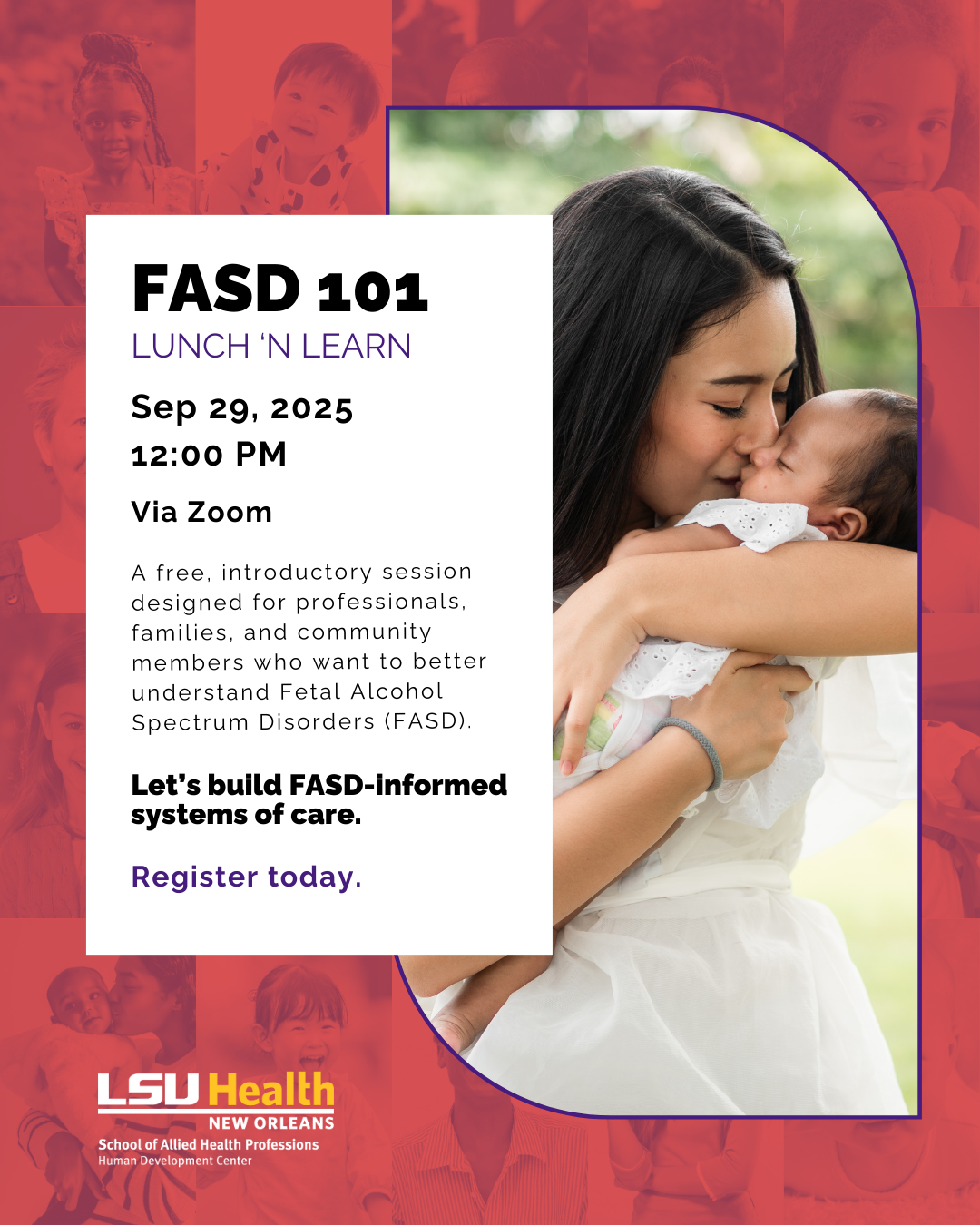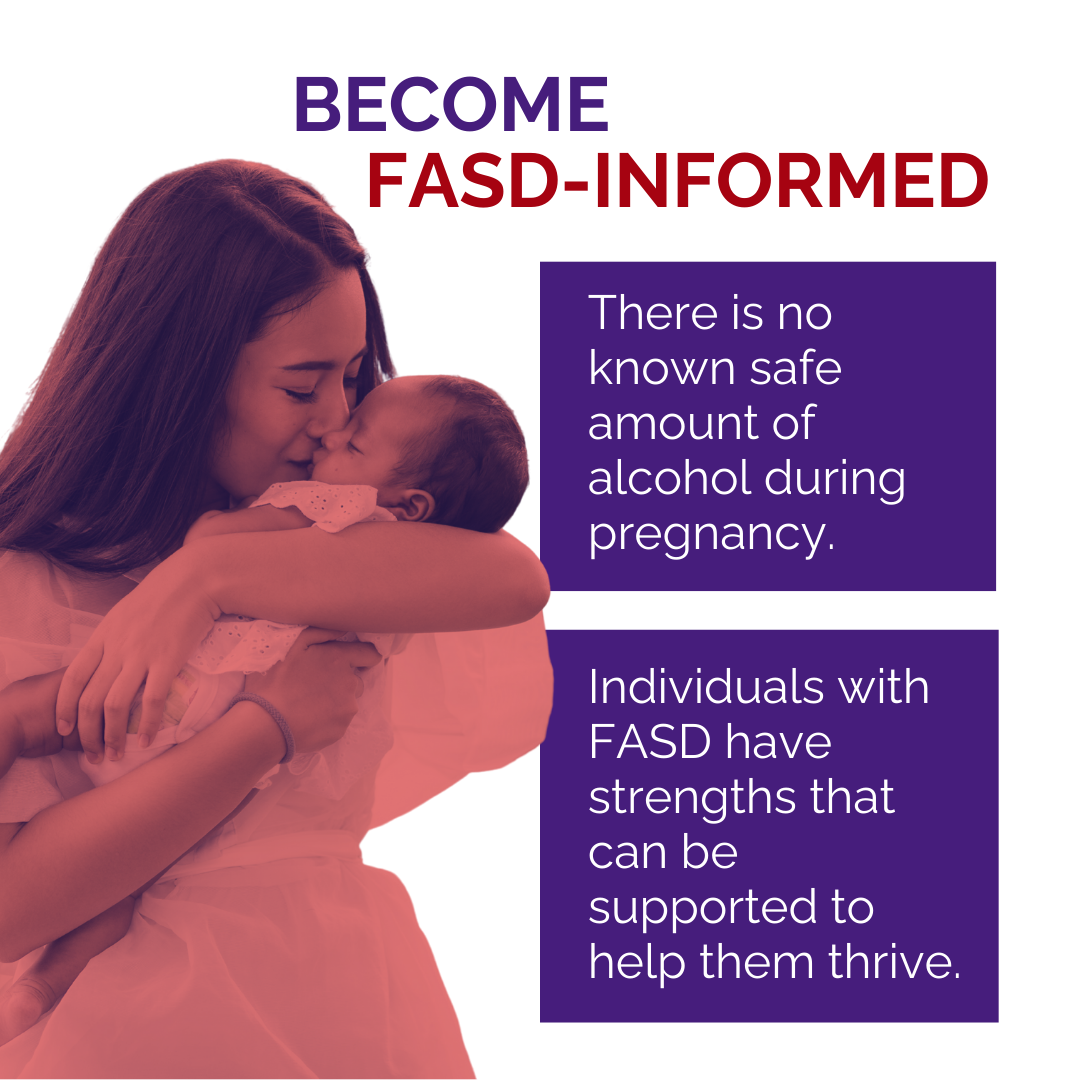
September is FASD Awareness Month
With 1 in 20 children estimated to have Fetal Alcohol Spectrum Disorders (FASD) in the United States, FASD isn't rare. It's everywhere. We're joining FASD United to educate our communities about the risks associated with prenatal alcohol exposure, provide support to individuals and families affected by FASD, and combat stigma.
FASD is a range of conditions that can occur in individuals that were exposed to alcohol in the womb. These conditions can lead to lifelong physical, behavioral, and cognitive challenges, including difficulties with learning, memory, attention, and social interactions.
Recognizing the strengths, talents, and gifts that individuals with FASD bring to our communities is a great way to celebrate FASD Awareness Month. Follow along with us this month to learn more about how to support and advocate for individuals with FASD and their families.
Download Fact Sheets from FASD United

FASD 101 Lunch & Learn on Septemerber 29th
Join the Human Development Center for our FASD 101 webinar—a free, introductory session designed for professionals, families, and community members who want to better understand Fetal Alcohol Spectrum Disorders.
Whether you’re a parent, educator, healthcare provider, or advocate, this session will give you the foundation to recognize FASD and connect with helpful tools and services. Let’s build FASD-informed systems of care in Louisiana.
Register for the virtual Lunch & Learn
Sep 29, 2025 at 12:00 PM
Hosted by Krista James, Ph.D.

Awareness and Support Events
Spreading awareness of FASD helps combat stigma that prevents families from seeking the help they need. By promoting understanding and empathy, we can help create a more supportive environment for everyone affected by FASD.
Join HDC's Social Media Campaign on FacebookJoin HDC's Social Media Campaign on Instagram
Consider joining one of the following awareness opportunities:

- September 5-15: Move FASD
Move FASD is a national series of local events, intended to gather our communities for FASD Awareness. Whether it’s a group of 5 people or 50 people, we are inviting local communities to join the movement. Activities can include anything that gets you moving your body: bean-bag toss, a 5k, a dance marathon, a yoga session… whatever gets you moving!
Learn more about Move FASD and regsiter here. - Tuesday, September 9: FASD Awareness Day
- Wednesday, September 10 at 11 AM CST: From Crayons to Caps & Gowns: Understanding FASDs Across the School-Age Spectrum
This webinar will provide primary care clinicians with the tools they need to coordinate care for children with FASD from school-age to young adulthood. The session will focus on identifying and managing neurobehavioral and medical concerns at different developmental stages. Participants will learn about medical, therapeutic, and pharmaceutical considerations. Presenter: Adiaha Spinks-Franklin, MD, MPH, FAAP
Register for the webinar via Zoom here
- Friday, September 12 at 12 PM CST: Caregiver Support and Resource Navigation Group - $20
Participants will help determine the themes and topics covered to best support their needs. Topics may include: Sharing the joys and challenges of caregiving for adults or youth transitioning into adulthood who have FASD or similar neurodiversity/disability; Exchanging ideas and sharing successes; Strengthening the caregiver-child relationship through a better understanding of your youth or young adult; Caregiver resource systems navigation (employment, disability services, financial, medical, educational); Supporting transitions and helping to navigate changes in school, employment, life, and daily routines; Supporting employment, interpersonal skills, recreation, friendships, relationships, regulation, and interdependence; Managing caregiver fatigue and avoiding burnout.
Facilitated by Parent Consultant and now retired Key Worker Coordinator Jill Crichton with additional support provided by practicum student clinicians Jasleen Mann and Dana Patterson.
Learn more about the Support Group - Saturday, September 13: Self-Advocate Support Group
The FASD Collaborative Project hosts several support groups and educational sessions. Register to attend the FASD Never Alone support group with Miranda Bezell
Email host to register for the FASD Never Alone support group at mandy-gcorp@hotmail.com
